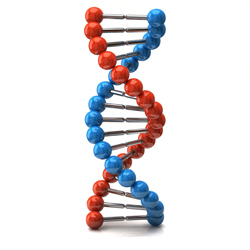New DNA techniques entitle inmate to new testing despite deadline, 9th Circuit says

Image from Shutterstock.
Old DNA samples that were too small for testing under old techniques can be examined using new tests, even though a three-year limit has passed, a federal appeals court has ruled.
The samples are akin to “newly discovered evidence” because identification is now possible using the new tests, according to the opinion by the San Francisco-based 9th U.S. Circuit Court of Appeals. As a result, the statute of limitations governing DNA tests to establish innocence doesn’t apply. The Associated Press and Courthouse News Service covered the July 10 decision (PDF).
The court ruled in the case of Bill Watson, a Montana man convicted of attempted sexual abuse of a 14-year-old girl who had passed out during a party at her home in 2006. The girl’s brother claimed he caught Watson in the act, and when he and a friend woke the girl up, she put on her mother’s underwear and other clothes that did not smell of vomit.
Watson claimed he had walked through the bedroom to reach the bathroom and never touched the girl. Vaginal swabs found no semen, and there was not enough semen on the mother’s underwear worn by the girl for testing using techniques available at the time. Watson was convicted in 2006 and sought DNA testing in 2013.
The Innocence Project represented Watson.
Write a letter to the editor, share a story tip or update, or report an error.


